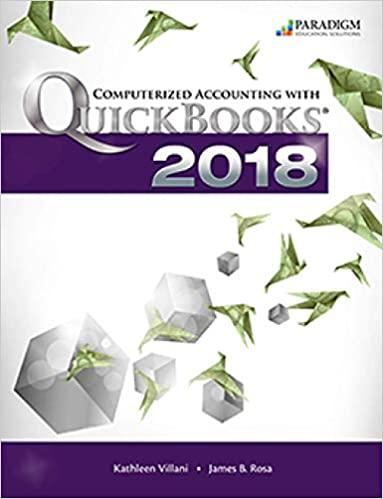






Background Assume it is currently June 1, 2018. You are working for the temporary accounting employment agency known as Uptempo. Today you have been asked to work at Vinyl Revival, a small music store that operates in inner city Seattle and is aowned by Margaret Downing. Your task here is to complete the accounting cy e for Viny Revival for the month o une 2018. as you thes task Margaret tells you to read the company's account ng policies and procedures. Note that you will be equired to follo these policies and procedures when oom leting the accounts for Vinyl Revival Accounting policies a. Business operations: Vinyl Revival is set up as a private non-listed corporation based in Seattle with Margaret Downing as the sole stockholder. The business derives its main source of revenue from retail sales of music related goods. To assist in managing the business, Vinyl Revival rents a small office space. Nate that the business is required to pay for the rent for this premises in advance. The dlectricity and water experises incurred during the manth relate to the running of the affice. Additional expenses include an insurance palicy to protect the equipment in the office in the event of theft or fire. Al costs associated with the office are class tied as general and administrative expenses. Margaret is the only full-time employee and her role is to handle all administrative tasks. Margaret's salary is paid once at the end of each month. All other employees are sales staff who are employed on a part-time basis. The sales staff receive their wages every two weeks b. Accounting cycle: The business adopts a monthly accounting cyde. c. Purchases: Purchases are recorded when the business receives the goods, All items purchased are received on the same day as recorded in the transaction list, except for purchase orders which are received at a later date. Note that the business uses the gross method of recording purchases and recelves trade discounts and early payment discounts from some suppliers. d. Purchase returns: To allow Margaret to separately track and analyze the value of goods retumed to suppliers, all purchase returns are recorded in the Purchase Returns and Allowances account rather than directly in the Purchases account. e. Revenue recognition: The business recognizes revenues when goods sold are delivered to customers. All items sold are delivered on the same day as recorded in the transaction list except for sales orders, which are dellvered at a later date as agreed with the customer. Note that the business uses the gross method of recording sales and sometimes grants trade discounts to customers. Past experience has shown that offering early payment discounts did not increase the likelihood of accounts receivable being paid promptly. Therefore, discounts for early payment ef accounts are not normally offered to credit customers except in exceptional circumstances. f. Sales returns: Sott te business can easily track the level of sales returns in relation to overall sales, all sales retums are recorded using a contra revenue account (Sales Returns and Allowances) rather than being recorded drectly in the Sales Revenue account 9- Sales tax: Margaret has advised you to ignore t e effect of sales tax. ASIDE: Thisis an assurn on to make tho practice set ea aer or you to mplete n the real world sales tax canot be ignored. h. Cash: The business accepts cash and checks arid uses checks to pay for the majority of its expenses. On the day checks are received, Margaret depasits them at the bank. It may take a nurnber af days for the checks to be cleared by the bank.The business halds it checking account with BitiBark yearly interest divided by the number of months in a year. Note that when the deposit matures, Margaret usualy rolls over the principal and interest received at the end of the tem. The term deposit account was rolled over on June 1, 2018 and the opening balance of the Merchandise Inventory account are closed to the Income Summary account and Merchandise Inventory is restated to its ending balance. Note that the company does not use a Cost of oods Sold account. i. Short-term investments: The business holds a six-month term deposit account with BitiBank at a simple interest rate of 6% Interest is calculated on a monthly basis and received at the end of the deposit tenm. The monthly interest eamed is calculated as the j. Inventories: The business uses the periodic inventory system and and records all purchases of inventory in the Purchases account, rather than recording them directly in the Merchandise Inventory account. At the end of the reporting period, the Purchases account k. Prepayments: The business has a policy of recording prepayments, including office supplies, as assets. At the end of the month, adjustments are made to the relevant accounts to recognize the expense incurred during the accounting period. I. Property, plant and equipment: Property, plant and equlpment Items are depreclated over their estimated useful life using the stralght line method to calculate the depreclation charge. Depreclation is allocated on a monthly basis and the monthly depreclation charge is calculated as the yearly deprediation expense divided by the number of months in a year. Lorbg-term Ildbilities: The business obtained an interest or y loan frorn MRMC Bark an ]une 1 2018 at a s m le rtere rate of 6% per ear. The first interest pa ment is due at the end of August 2018 and the pr napal on the loan is due an June 1 2021. m













